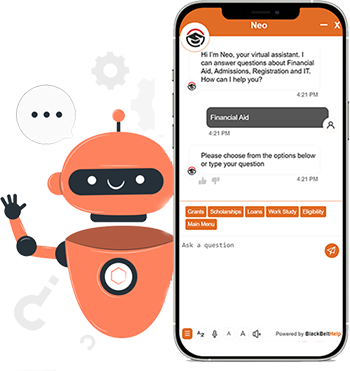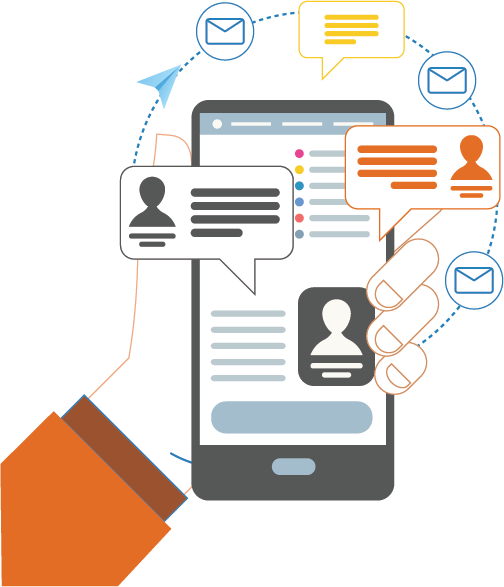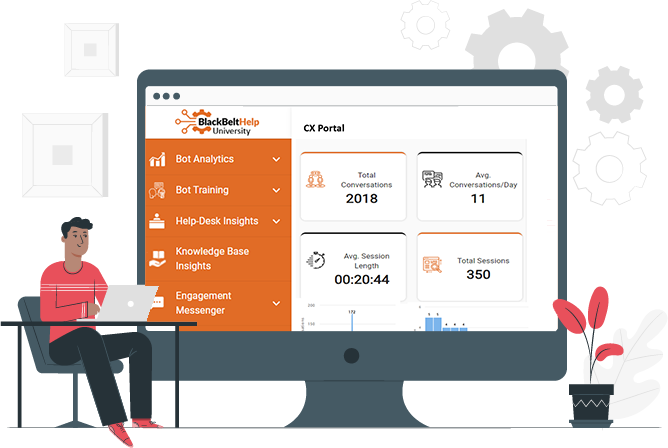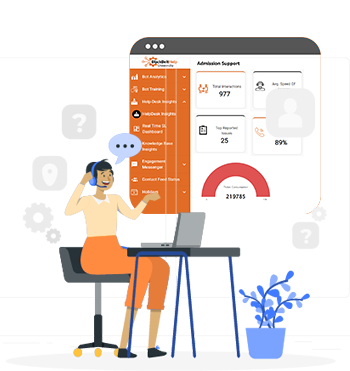7 Distinct Ways Contact Centers Can Ensure Student Success

In the ever-evolving landscape of education, student success remains at the core of every academic institution’s mission. From K-12 to Higher Education, fostering student success and providing comprehensive support is crucial for student growth and development.
This is even more important for today’s students – who have become accustomed to quick and efficient services, whether it’s ridesharing, grocery delivery, or streaming media. To meet these heightened expectations and enhance recruitment and retention, educational institutions are now embracing omnichannel customer service solutions that combine AI-powered technology, top-rated agents, and operational expertise.
Traditionally used in B2C retail settings, Contact Centers are now being adapted and optimized for educational institutions to streamline student support.
However, there is a huge difference in the services provided to students compared to the services provided to customers in a business setting, as the pursuit of education is a much more worthy goal. Rather than just making money and racking up profits, working in education serves a bigger purpose—improving the citizens of the world. As Micah Solomon, Senior Contributor at Forbes.com says, “You’re not simply trying to ’serve customers,’ you’re trying to build your students into responsible scholars and citizens.” Because of this, there’s a difference between serving business customers and serving educational customers.
In this blog, we will explore several ways Contact Centers are transforming education and enhancing student success. But first, let’s try to understand the challenges faced by students that have resulted in the need for additional support:
1. Academic Queries: Students often have questions about course registration, class schedules, grading, and assignment submissions. Accessible Contact Center Support can provide prompt and accurate assistance, ensuring students stay on track with their studies.
2. Technical Issues with Online Learning: With the rise of online learning platforms, students may face technical challenges like login issues, connectivity problems, or difficulty navigating digital resources. A Contact Center equipped to handle tech-related queries can provide timely solutions.
3. Financial Aid and Tuition Inquiries: Students may require guidance on financial aid options, tuition payment methods, or scholarship opportunities. Contact Center Support can offer personalized information that solves various financial concerns.
4. Counseling and Mental Health Support: The pressures of academia can impact a student’s mental health. A Contact Center equipped with trained advisors can direct students to counseling services, offering a supportive environment for emotional well-being.
5. Career Services and Internship Opportunities: Students seek guidance on career planning, resume building, and internship opportunities. Contact Center support can connect them with their school’s career services and provide valuable resources.
6. International Student Support: International students may face unique challenges, such as visa issues, cultural adjustments, and language barriers. A Contact Center offering multilingual support can cater to their specific needs and ensure a smooth transition.
7. General Campus Information: From library hours to campus events, students seek up-to-date information about various aspects of campus life. A Contact Center serves as a centralized source of information, fostering accurate information and better engagement.
All these challenges impact student success. Not having immediate access to a solution for these challenges can greatly impact student performance, morale, and success.
By addressing the diverse needs and challenges of today’s students, Contact Centers can play a vital role in ensuring student’s academic journey is supported, leading to a more successful and fulfilling educational experience.
Now, let’s take a look at seven distinct ways in which Contact Center services can impact student success:
Improved Communication:
Contact Centers that embrace multiple communication channels empower students to connect with their institution more easily. These channels can include phone calls, emails, live chat, chatbots, and online web ticketing. By providing diverse communication options, institutions ensure that students can seek support and assistance in a way that suits their preferences and schedules. Enhanced accessibility leads to faster issue resolution and a more seamless learning experience.
24/7 Support That Provides Instant Answers:
Wondering if and when they will get a response from the school should be the last thing on a student’s mind. To ensure that help is available whenever students need it, it is imperative to have a responsive team available 24 hours a day, seven days a week. Education is not confined to traditional office hours, and students require assistance beyond the regular school day. Contact Centers offer 24/7 support, ensuring that students can access resources and resolve queries at any time. This around-the-clock availability is particularly beneficial for online and international students who may be in different time zones.
Quick responses, whether through chatbots or email, will help reduce the stress during late-night cram sessions or admissions time. Being responsive is one of the best ways for a school to deliver a superior student experience.
Personalized Assistance:
Every student has unique needs and learning styles. Contact Centers provide personalized assistance that’s tailored to individual students. By leveraging data analytics and AI-driven technologies, institutions can assess student information, academic history, and performance to offer personalized guidance, resources, and support. This approach fosters a sense of individualized care, enhancing students’ overall success.
Proactive Student Outreach:
Contact Centers empower institutions to initiate proactive outreach to students. For instance, automated reminders for assignment deadlines, exam schedules, and important events can help keep students on track and reduce academic stress.
Additionally, Contact Centers can reach out to at-risk students, identifying those that may be struggling academically or emotionally. Early interventions and support can help these students get back on track and improve their overall success.
Resource Accessibility:
Contact Centers provide a centralized platform for students to access a wide range of resources. Whether it’s academic materials, career guidance, or mental health support, students can find essential resources all in one place. This streamlined access enhances student accomplishments as well as promotes a culture of self-directed learning and growth.
Efficient Query Resolution:
Long wait times and multiple transfers in traditional support systems can lead to frustration for students seeking assistance, while a Contact Center can streamline query resolution by utilizing intelligent routing and automated responses. Students are quickly connected to the right department or personnel, resulting in efficient issue resolution and a more positive experience.
Enhanced Data Management:
With a Contact Center, institutions can collect and analyze data related to student interactions and support needs. This data-driven approach offers valuable insights into student behaviors, preferences, and pain points. Educational institutions can use this data to make data-informed decisions, improve support systems, and further refine their offerings to ensure student success.
In conclusion, Contact Centers have emerged as a powerful tool for educational institutions to streamline student success. By fostering improved communication, providing 24/7 support, and offering personalized assistance, Contact Centers enhance the learning experience for students.
Proactive outreach, resource accessibility, efficient query resolution, and enhanced data management further contribute to the overall success of students. As education continues to further develop in the digital age, Contact Centers stand as a transformative solution to empower students on their academic journey. Through a seamless integration, educational institutions that incorporate Contact Centers will be better equipped to foster student success and ensure that they will thrive academically and beyond.









